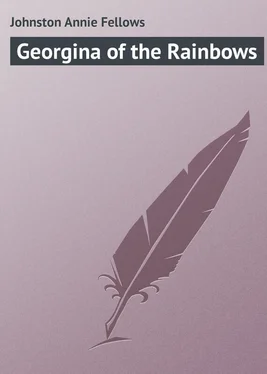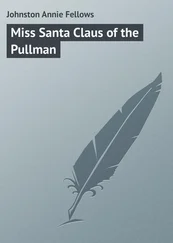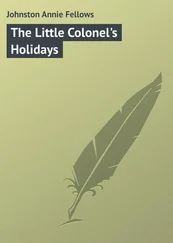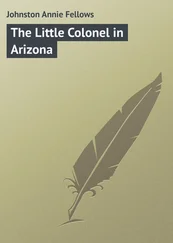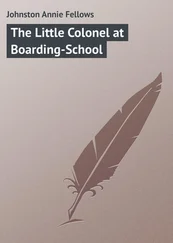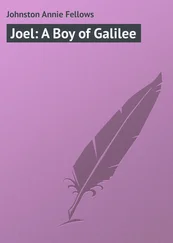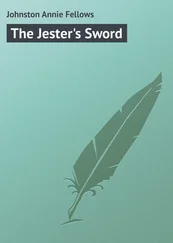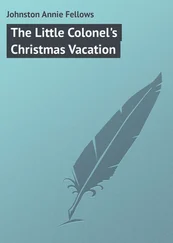Annie Johnston - Georgina of the Rainbows
Здесь есть возможность читать онлайн «Annie Johnston - Georgina of the Rainbows» — ознакомительный отрывок электронной книги совершенно бесплатно, а после прочтения отрывка купить полную версию. В некоторых случаях можно слушать аудио, скачать через торрент в формате fb2 и присутствует краткое содержание. Жанр: foreign_prose, foreign_children, на английском языке. Описание произведения, (предисловие) а так же отзывы посетителей доступны на портале библиотеки ЛибКат.
- Название:Georgina of the Rainbows
- Автор:
- Жанр:
- Год:неизвестен
- ISBN:нет данных
- Рейтинг книги:4 / 5. Голосов: 1
-
Избранное:Добавить в избранное
- Отзывы:
-
Ваша оценка:
- 80
- 1
- 2
- 3
- 4
- 5
Georgina of the Rainbows: краткое содержание, описание и аннотация
Предлагаем к чтению аннотацию, описание, краткое содержание или предисловие (зависит от того, что написал сам автор книги «Georgina of the Rainbows»). Если вы не нашли необходимую информацию о книге — напишите в комментариях, мы постараемся отыскать её.
Georgina of the Rainbows — читать онлайн ознакомительный отрывок
Ниже представлен текст книги, разбитый по страницам. Система сохранения места последней прочитанной страницы, позволяет с удобством читать онлайн бесплатно книгу «Georgina of the Rainbows», без необходимости каждый раз заново искать на чём Вы остановились. Поставьте закладку, и сможете в любой момент перейти на страницу, на которой закончили чтение.
Интервал:
Закладка:
Tippy was not one who could sit calmly by and see a child suffer for lack of proper instruction, and while Georgina never knew just how it was done, the fact was impressed upon her as years went by that there were many things which she could not do, simply because she was a Huntingdon and because her name had been graven for so many generations around that shining silver rim.
Although to older eyes the happenings of that morning were trivial, they were far-reaching in their importance to Georgina, for they gave her three memories – Jeremy's teeth, the Towncrier's bell, and her own name on the porringer – to make a deep impression on all her after-life.
CHAPTER III
THE TOWNCRIER HAS HIS SAY
THE old Huntingdon house with its gray gables and stone chimneys, stood on the beach near the breakwater, just beyond the place where everything seemed to come to an end. The house itself marked the end of the town. Back of it the dreary dunes stretched away toward the Atlantic, and in front the Cape ran out in a long, thin tongue of sand between the bay and the harbor, with a lighthouse on its farthest point. It gave one the feeling of being at the very tip end of the world to look across and see the water closing in on both sides. Even the road ended in front of the house in a broad loop in which machines could turn around.
In summer there was always a string of sightseers coming up to this end of the beach. They came to read the tablet erected on the spot known to Georgina as "holy ground," because it marked the first landing of the Pilgrims. Long before she could read, Mrs. Triplett taught her to lisp part of a poem which said:
"Aye, call it holy ground,
The thoil where firth they trod."
She taught it to Georgina because she thought it was only fair to Justin that his child should grow up to be as proud of her New England home as she was of her Southern one. Barbara was always singing to her about "My Old Kentucky Home," and "Going Back to Dixie," and when they played together on the beach their favorite game was building Grandfather Shirley's house in the sand.
Day after day they built it up with shells and wet sand and pebbles, even to the stately gate posts topped by lanterns. Twigs of bayberry and wild beach plum made trees with which to border its avenues, and every dear delight of swing and arbor and garden pool beloved in Barbara's play-days, was reproduced in miniature until Georgina loved them, too. She knew just where the bee-hives ought to be put, and the sun-dial, and the hole in the fence where the little pigs squeezed through. There was a story for everything. By the time she had outgrown her lisp she could make the whole fair structure by herself, without even a suggestion from Barbara.
When she grew older the shore was her schoolroom also. She learned to read from letters traced in the sand, and to make them herself with shells and pebbles. She did her sums that way, too, after she had learned to count the sails in the harbor, the gulls feeding at ebb-tide, and the great granite blocks which formed the break-water.
Mrs. Triplett's time for lessons was when Georgina was following her about the house. Such following taught her to move briskly, for Tippy, like time and tide, never waited, and it behooved one to be close at her heels if one would see what she put into a pan before she whisked it into the oven. Also it was necessary to keep up with her as she moved swiftly from the cellar to the pantry if one would hear her thrilling tales of Indians and early settlers and brave forefathers of colony times.
There was a powder horn hanging over the dining room mantel, which had been in the battle of Lexington, and Tippy expected Georgina to find the same inspiration in it which she did, because the forefather who carried it was an ancestor of each.
"The idea of a descendant of one of the Minute-men being afraid of rats! " she would say with a scornful rolling of her words which seemed to wither her listener with ridicule. "Or of an empty garret! Tut! "
When Georgina was no more than six, that disgusted "Tut!" would start her instantly down a dark cellar-way or up into the dreaded garret, even when she could feel the goose-flesh rising all over her. Between the porringer, which obliged her to be a little lady, and the powder horn, which obliged her to be brave, even while she shivered, some times Georgina felt that she had almost too much to live up to. There were times when she was sorry that she had ancestors. She was proud to think that one of them shared in the honors of the tall Pilgrim monument overlooking the town and harbor, but there were days when she would have traded him gladly for an hour's play with two little Portuguese boys and their sister, who often wandered up to the dunes back of the house.
She had watched them often enough to know that their names were Manuel and Joseph and Rosa. They were beautiful children, such as some of the old masters delighted to paint, but they fought and quarreled and – Tippy said – used "shocking language." That is why Georgina was not allowed to play with them, but she often stood at the back gate watching them, envying their good times together and hoping to hear a sample of their shocking language.
One day when they strolled by dragging a young puppy in a rusty saucepan by a string tied to the handle, the temptation to join them overcame her. Inch by inch her hand moved up nearer the forbidden gate latch and she was just slipping through when old Jeremy, hidden behind a hedge where he was weeding the borders, rose up like an all-seeing dragon and roared at her, "Coom away, lass! Ye maun't do that!"
She had not known that he was anywhere around, and the voice coming suddenly out of the unseen startled her so that her heart seemed to jump up into her throat. It made her angry, too. Only the moment before she had heard Rosa scream at Manuel, "You ain't my boss; shut your big mouth!"
It was on the tip of her tongue to scream the same thing at old Jeremy and see what would happen. She felt, instinctively, that this was shocking language. But she had not yet outgrown the lurking fear which always seized her in his presence that either her teeth or his might fly out if she wasn't careful, so she made no answer. But compelled to vent her inward rebellion in some way, she turned her back on the hedge that screened him and shook the gate till the latch rattled.
Looking up she saw the tall Pilgrim monument towering over the town like a watchful giant. She had a feeling that it, too, was spying on her. No matter where she went, even away out in the harbor in a motor boat, it was always stretching its long neck up to watch her. Shaking back her curls, she looked up at it defiantly and made a face at it, just the ugliest pucker of a face she could twist her little features into.
But it was only on rare occasions that Georgina felt the longing for playmates of her own age. Usually she was busy with her lessons or happily following her mother and Mrs. Triplett around the house, sharing all their occupations. In jelly-making time she had the scrapings of the kettle to fill her own little glass. When they sewed she sewed with them, even when she was so small that she had to have the thread tied in the needle's eye, and could do no more than pucker up a piece of soft goods into big wallops. But by the time she was nine years old she had learned to make such neat stitches that Barbara sent specimens of her needlework back to Kentucky, and folded others away in a little trunk of keepsakes, to save for her until she should be grown.
Also by the time she was nine she could play quite creditably a number of simple Etudes on the tinkly old piano which had lost some of its ivories. Her daily practicing was one of the few things about which Barbara was strict. So much attention had been given to her own education in music that she found joy in keeping up her interest in it, and wanted to make it one of Georgina's chief sources of pleasure. To that end she mixed the stories of the great operas and composers with her fairy tales and folk lore, until the child knew them as intimately as she did her Hans Andersen and Uncle Remus.
Читать дальшеИнтервал:
Закладка:
Похожие книги на «Georgina of the Rainbows»
Представляем Вашему вниманию похожие книги на «Georgina of the Rainbows» списком для выбора. Мы отобрали схожую по названию и смыслу литературу в надежде предоставить читателям больше вариантов отыскать новые, интересные, ещё непрочитанные произведения.
Обсуждение, отзывы о книге «Georgina of the Rainbows» и просто собственные мнения читателей. Оставьте ваши комментарии, напишите, что Вы думаете о произведении, его смысле или главных героях. Укажите что конкретно понравилось, а что нет, и почему Вы так считаете.
